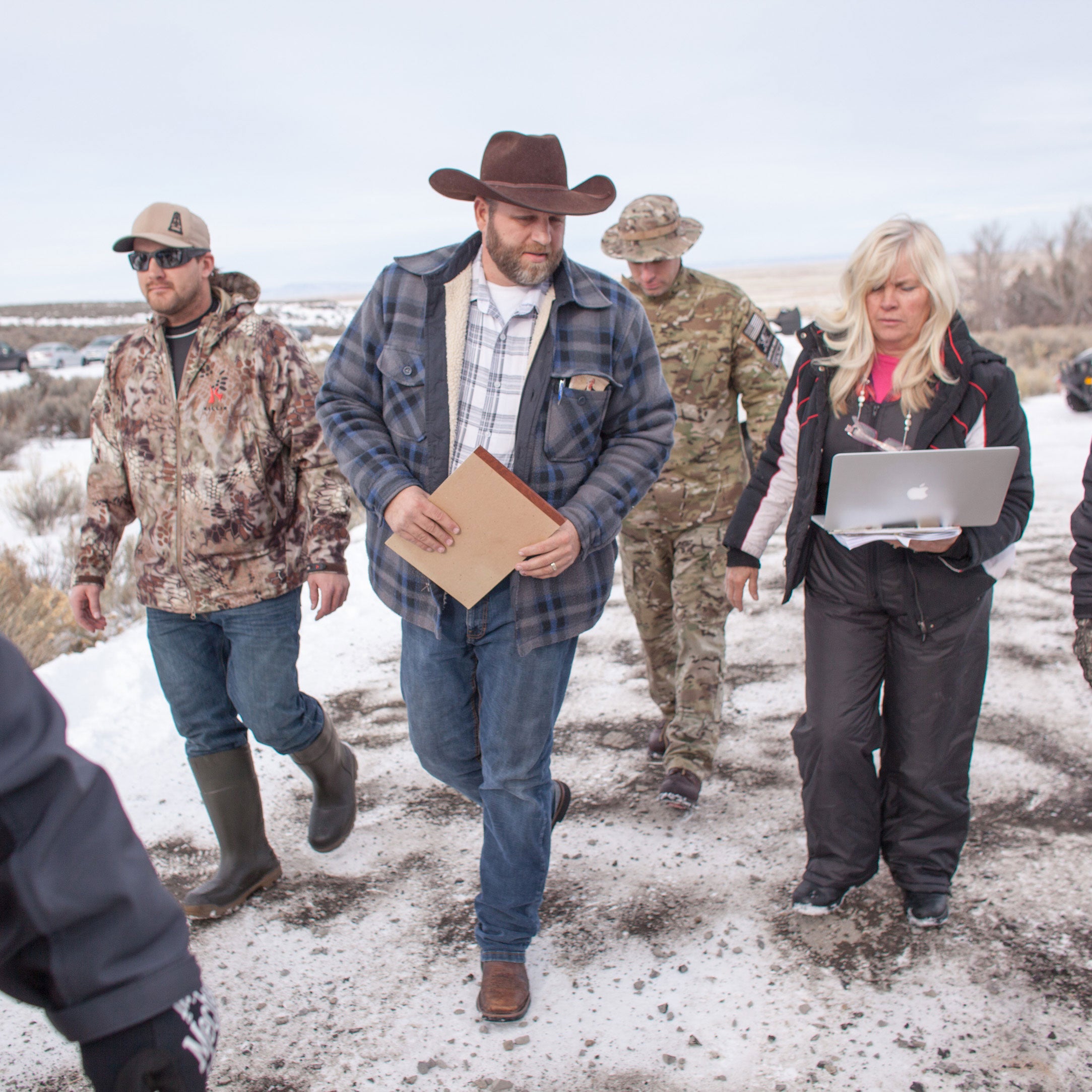Last month’s acquittal of seven members of the armed occupation of the Malheur Wildlife Refuge in Oregon caused jaws to drop all over the country. Environmentalists, experts on extremism, legal scholars, and even the defense attorneys of the accused couldn’t believe it. “In no uncertain terms, the acquittal was tantamount to a disaster,” says Ryan Lenz, a senior writer for the , which monitors radical groups in the U.S. “The message that jury sent was, ‘You can take a bunch of heavily armed men, take over a federal building, make demands, and threaten violence if those demands are not met, and get away with it.’”
The question is: Could this set a precedent for more armed takeovers around the U.S.?
Legally, the answer's no. “Jury verdicts don’t provide a lot of precedents,” says Margaret Paris, a University of Oregon law professor who specializes in criminal law. Juries can ignore the law in their reasoning and verdicts. “They have a locked door between them and the rest of the world,” she says. Precedent-setting cases are typically those decided by a judge, whose rationale is then on record.
“I’m deeply concerned about the political climate for people who work on national wildlife refuges.”
The verdict, of course, doesn’t change the government’s ability to own land—as many Malheur occupiers and their supporters have mistakenly argued. But it has galvanized the right-wing bloc of Americans who believe that the federal government can’t rightfully own land and it’s emboldening the Bundys to threaten more armed occupations around the West.
Five days after the trial ended, Ryan Bundy that if the federal government moved forward with bestowing national-monument status on Nevada’s Gold Butte area—a 350,000-acre swath of desert filled with archeological sites adjacent to his father’s ranch—his supporters might initiate another Malheur-like display of force. “If the government won’t restrain itself, whatever happens is their own fault,” he said. “The government should be scared. They are in the wrong. The land does not belong to the government.”
In Oregon, that the Owyhee Canyonlands, which many call “Oregon’s Grand Canyon,” may be the Bundys’ next target. Since last year, groups like the Oregon Natural Desert Association (ONDA) and Keen footwear have been pushing President Obama to declare the area a national monument. But many ranchers in the state oppose that action. In May, they filled the capitol building to tell legislators a monument could put them out of business. The idea of an Owyhee monument spooked some sheriffs in Oregon: in May, that he was “concerned about people from outside the county who will come with their own agendas” if the federal land was protected there.
The not-so-subtle hints of potential aggression have some public lands workers worried for their safety. “I’m deeply concerned about the political climate for people who work on national wildlife refuges,” says conservation director Steve Pedery. “I think that is the real danger out of this.”
U.S. Fish and Wildlife Service director Dan Ashe wrote in an email to ���ϳԹ��� that he is “disappointed and concerned about the safety of the men and women we send out to provide American conservation.” He said his agency is “taking steps to enhance security and safety protocols at our facilities,” but wouldn’t share specific details.
In addition to the Bundy’s acquittal, the election of Donald Trump—a candidate supported by many Patriot and militia groups, and one “to get rid of” the Environmental Protection Agency—further underscores the potential for more Malheur-like occupations. “There is a chunk of the population that [thinks] if they can’t get what they want, it’s acceptable to threaten violence,” Pedery says.
But despite what he calls a “worrisome” acquittal, Brent Fenty, executive director of ONDA, which supported the movement to turn the Owyhee Canyonlands into a monument, says that environmentalists shouldn’t walk on eggshells just “because a few people tried to take over a wildlife refuge. This, if anything, has been a wake-up call to Americans—who clearly do love their public lands—that they can’t take their public lands for granted. They’d better stand up.”
The jury may have found the Bundys not guilty, but “Oregonians and Americans are outraged by what happened at the Malheur Refuge,” he says. “They don’t want intimidation or harassment to effect decision making.”
Fenty believes the acquittal just proved that the government didn’t argue its case well. “I think to not make the decisions that need to be made because of the prospect of something like the Malheur occupation is unacceptable,” he says. “That’s not how democracy works. You do not reward bullies.”


